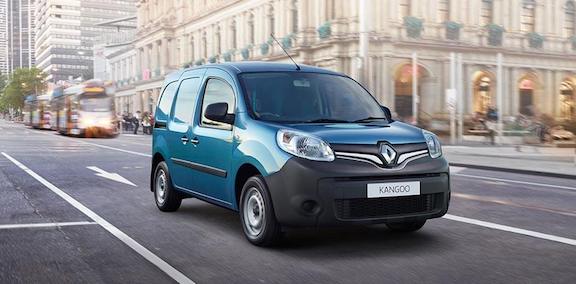The prospect of a tariff-free zone for car imports between the U.S. and the European Union is sending a chill through the French auto industry.

U.S. President Donald Trump and the EU’s top executive, Jean-Claude Juncker, this week said they would negotiate a deal to lower industrial tariffs, part of a cease-fire following Trump’s threat to levy duties on car imports to the U.S. Ahead of Wednesday’s meeting with Juncker, Trump even raised the prospect of doing away with barriers altogether.
Yet French companies say such a deal would open the gates to Asian rivals, because World Trade Organization rules mandate that all partners must be covered by provisions that apply to the “most favored nation.” In other words, if U.S. companies are granted tariff-free access to the EU, the bloc’s other partners, including Asian companies producing cheaper cars, could be granted the same.
For French companies such as Renault SA and PSA Group, the maker of Peugeot and Citroen vehicles, that means more competition in their European markets. And they would receive no benefit from the lack of tariffs on imports to the U.S., because they don’t sell cars there.
‘Dangerous Idea’
“Lowering tariffs generally is a rather dangerous idea, because it could lead to a unilateral disarmament,” said Luc Chatel, the head of French auto industry lobby PFA, said in an emailed response to questions. A multilateral agreement to lower tariffs could bring “unfair competition in terms of norms and rules” if countries like China, Japan, Korea “enter in the race,” said Chatel, who served as a government minister under President Nicolas Sarkozy. “Right away there’s a new risk for French industrials.”
A spokesman for the French ministry of economics said by phone, “For this reason, France doesn’t wish” to multilaterally lower tariffs.
As Europe’s top car exporter, Germany stood to be hit hardest by any new levy imposed by Trump on imported autos, which would be based on the same national-security argument he has used to apply U.S. tariffs on foreign steel and aluminum. About half of all cars sold in the U.S. from German manufacturers like Daimler AG are imported from the EU.
German Enthusiasm
Reaction to the Trump-Juncker meeting in Germany, the home of high-end carmakers Mercedes, Audi and BMW, was broadly positive. Economy Minister Peter Altmaier tweeted that the outcome was a “breakthrough” that “can avoid trade war and save millions of jobs.” Ulrike Demmer, a deputy government spokeswoman, reaffirmed Germany’s backing for the commission in future negotiations.
French Economy Minister Bruno Le Maire wasn’t as enthusiastic. He ruled out a global commercial agreement between the EU and the U.S., which the U.S. Treasury Secretary Steven Mnuchin had mentioned previously. The minister asked for “clarifications” on the measures agreed on by Juncker, according to Agence France-Presse.
Chatel praised the “cautious” approach of the French government on the matter. “Any unilateral increase of tariff duties would be detrimental to the world economy in general, especially the automotive industry,” he said. PFA founding members include France’s PSA, Renault, car-parts manufacturers Valeo SA, Faurecia SA and Plastic Omnium SA, as well as tire maker Michelin.
Spokesmen for PSA and Renault declined to comment.







